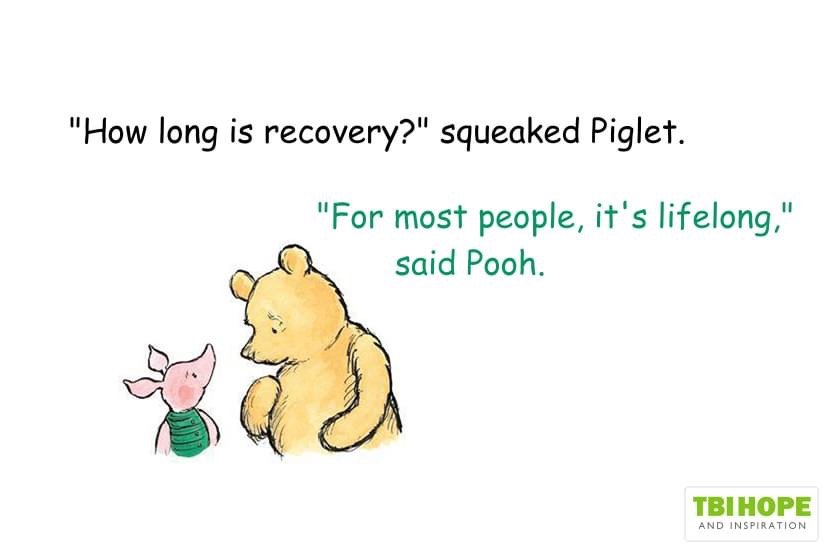“Identify, don’t compare”

It seems like for every human emotion or condition there’s a list of things “Not to say to someone who is (insert any condition ie. grieving, disabled, minority group).” An example I often hear is not to tell someone who suffers from chronic migraines that, “yeah, I get headaches too”, or a common one in the BI community is peoples’ attempts at making a survivor feel better about their memory issues by saying, “Oh, I forget stuff all the time too”. Usually advice against making statements to show you understand come from a place of not wanting to minimize the challenges of another, and certainly to guard against invalidating someone else’s struggle. While I certainly agree that it’s never helpful to discount a persons’ feelings, I can’t help but think of something I often here in recovery rooms: Identify, don’t compare.
Of course, in the context of a support/recovery group it seems kind of obvious that the benefit of participation is maximized only when you feel “a part of”, or at least attain some comfort among other members. But when you really think about it, the same principal applies to enjoyment of life: Identification, not comparing, with others, is one of the keys to maximizing satisfaction from life. In no way am I negating the importance of the support gained from connections among communities made up of members with specific characteristics whether that be race, gender, sexual orientation, ability status, political affiliation, religion… In fact, such groups have only shown me the vastness of humans’ similarities and allowed me to better identify with most people I meet in the community at large.
I had the great opportunity to connect with a woman not too long ago, who had read my book. I enjoyed the kind comments she shared about how much she enjoyed the book and was particularly intrigued and excited by how she identified with my experience. I had actually known this nice woman and her husband growing up and was aware that he had passed quite some time ago. To be honest, I’d only really thought of the usefulness of my particular story to informing, primarily young adults, to the importance of making good choices and avoiding unnecessary risk. To hear her talk about how she could almost feel the feelings I experienced facing living a life that was totally unplanned through my words was both gratifying and helped me appreciate the importance of identifying with others’ lived experiences.
I didn’t think of it at the time, but this woman read my story from an empathetic place, choosing to focus on how we both encountered totally unexpected losses; finding ourselves living lives we hadn’t imagined or planned for. As I saw the cute Winnie the Pooh graphic that is this post’s featured image while scrolling through my newsfeed this morning it really made me think…This cute image of Pooh answering Piglet’s question about recovery by saying, “For most people it’s lifelong”, was posted by the TBI Hope & Inspiration group, a vibrant community with a strong Social Media presence that publishes a great monthly magazine. So what thought was prompted by this simple image?
Well, first off, I strongly identified with the statement as pertaining to brain injury recovery. I’m blessed to find myself making gains in many different areas of functioning on an ongoing basis even now, almost 15 years post injury! So although I haven’t seen every ability come back or the ease of many activities return, that I haven’t reached a ceiling in progress is something that I’m immensely grateful for! When I choose to focus on the fact that my post-brain injury life really is a journey of continual goal setting, successes and, of course, some setbacks, I can’t help but see how similar we all are. For brain injury survivors, out of necessity really, this cycle of goal setting, working towards it, and hopefully achievement followed by the next challenge really looks like most peoples’ development process. Obviously, each of us have our own goals with survivors’ often consisting of learning to do things that use to come easy to us, only now in different ways.
How fortunate are we that when we look beneath all the details of each other’s experiences, some common emotional processes and feelings lie below. After all we’ve all had both the best, and the worse days of our lives. Remembering this fact is one way that I can identify with anyone that I happen to come across.